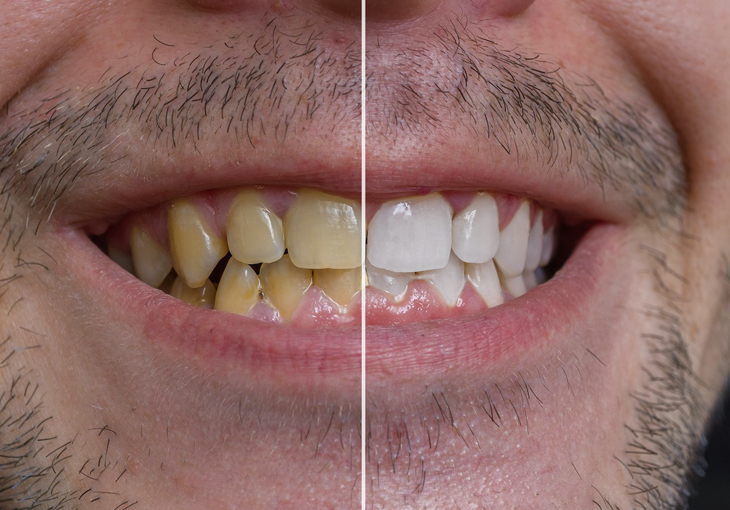
Teeth Whitening In Augusta, KS
Could you please provide an explanation of how teeth whitening functions?
Considerations for Care
We specialize in the art and science of dentistry at Newton Dental Studio, creating beautiful and healthy smiles. Our goal is to provide treatments that promote good oral health while achieving your smile goals. Our office offers a variety of advanced cosmetic dental services, and our team will help you choose the best option for your unique smile.
It's important to understand that teeth whitening may not work the same for all types of stains. This treatment only affects natural teeth and does not change the color of fillings, crowns, or bridges. Those with yellow-toned teeth typically see better results compared to those with brown or grayish teeth, who may require more intensive whitening or alternative treatments. Teeth whitening may not be suitable for individuals with sensitive teeth, worn enamel, or significant gum disease.
Our team will thoroughly assess your smile and provide expert advice on whether teeth whitening is the best option for you. If not, we will recommend alternative cosmetic procedures that can offer healthier and more effective results.
Learn about post-teeth whitening care and what to expect
- Be mindful of your diet: Avoid deeply colored foods and drinks such as coffee, red wine, dark sodas, teas, berries, grapes, chocolate, and other darkly colored foods, especially in the first 48 hours.
- Quit smoking or reduce it: Smoking can stain and yellow teeth, so refrain from smoking for at least the first few days after whitening. Cutting down or quitting smoking altogether can enhance both your smile and overall oral health.
- Manage sensitivity: It's common to experience sensitivity to hot and cold for a few days afterward. Using over-the-counter pain medication and sensitive teeth toothpaste can help ease discomfort.
- Understand variations in results: Results can vary depending on factors like your original tooth shade, diet, and oral habits. While whitening doesn't affect existing fillings, crowns, bridgework, or dental bonding, we can discuss replacement options if necessary.
- Maintain your results: Maintain proper oral hygiene and attend regular dental check-ups to preserve your whitening results. Additionally, we can provide a take-home whitening system for occasional touch-ups if needed.